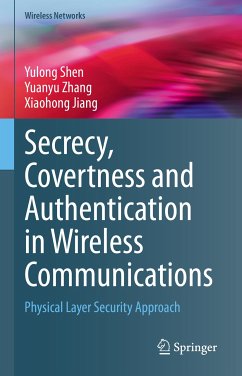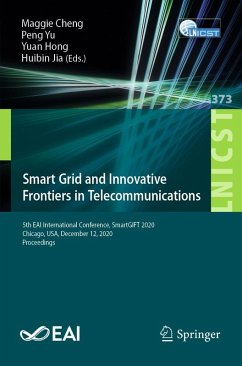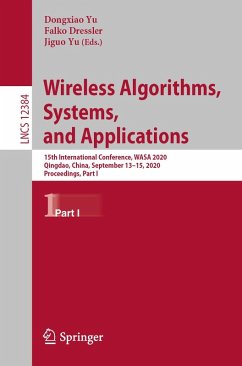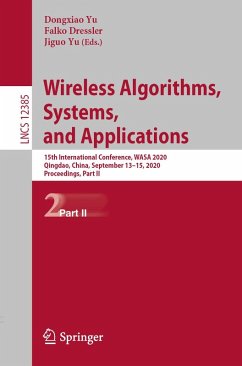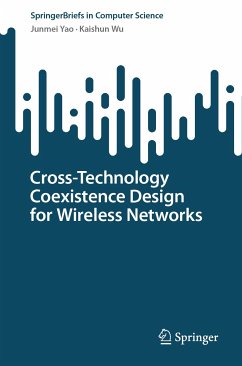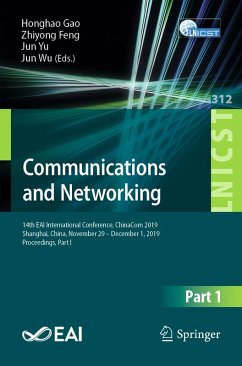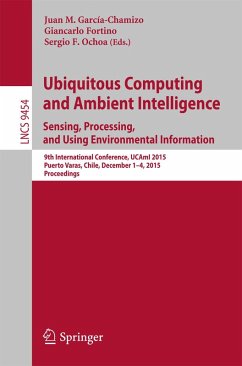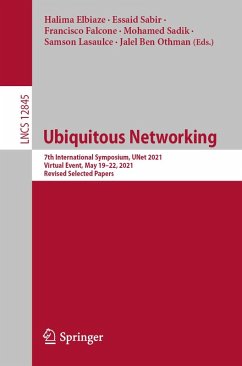
Wireless Multimedia Computational Communications (eBook, PDF)
Versandkostenfrei!
Sofort per Download lieferbar
128,95 €
inkl. MwSt.
Weitere Ausgaben:

PAYBACK Punkte
64 °P sammeln!
This book discusses the evolving designs and applications of multimedia content delivery and focuses on computing-based methods. It offers readers an in-depth understanding of how computational resources at both the source and the destination of the networking continuum can be exploited. This enhances the overall performance of multimedia data networking.This book also presents novel designs and applications focusing on information delivery based on computing. It starts with an overview of the multimedia computational communications as well as spanning topics. The topics range in experience ev...
This book discusses the evolving designs and applications of multimedia content delivery and focuses on computing-based methods. It offers readers an in-depth understanding of how computational resources at both the source and the destination of the networking continuum can be exploited. This enhances the overall performance of multimedia data networking.
This book also presents novel designs and applications focusing on information delivery based on computing. It starts with an overview of the multimedia computational communications as well as spanning topics. The topics range in experience evaluation using electroencephalography, semantic knowledge bases with the next generation of multiple access, end-to-end semantic communication framework and cloud-edge-end intelligent coordination computing. The authors believe this book offers readers a clear picture of the current state and the next steps in multimedia computational communication networks.
Graduate students majoring in the areas of communication networks, computer science and engineering and electrical engineering will find this book useful as a secondary text or reference book. Professionals and researchers working in computational transmission solutions for multimedia communication networks will find this book to be a valuable resource as well.
This book also presents novel designs and applications focusing on information delivery based on computing. It starts with an overview of the multimedia computational communications as well as spanning topics. The topics range in experience evaluation using electroencephalography, semantic knowledge bases with the next generation of multiple access, end-to-end semantic communication framework and cloud-edge-end intelligent coordination computing. The authors believe this book offers readers a clear picture of the current state and the next steps in multimedia computational communication networks.
Graduate students majoring in the areas of communication networks, computer science and engineering and electrical engineering will find this book useful as a secondary text or reference book. Professionals and researchers working in computational transmission solutions for multimedia communication networks will find this book to be a valuable resource as well.
Dieser Download kann aus rechtlichen Gründen nur mit Rechnungsadresse in A, B, BG, CY, CZ, D, DK, EW, E, FIN, F, GR, HR, H, IRL, I, LT, L, LR, M, NL, PL, P, R, S, SLO, SK ausgeliefert werden.



